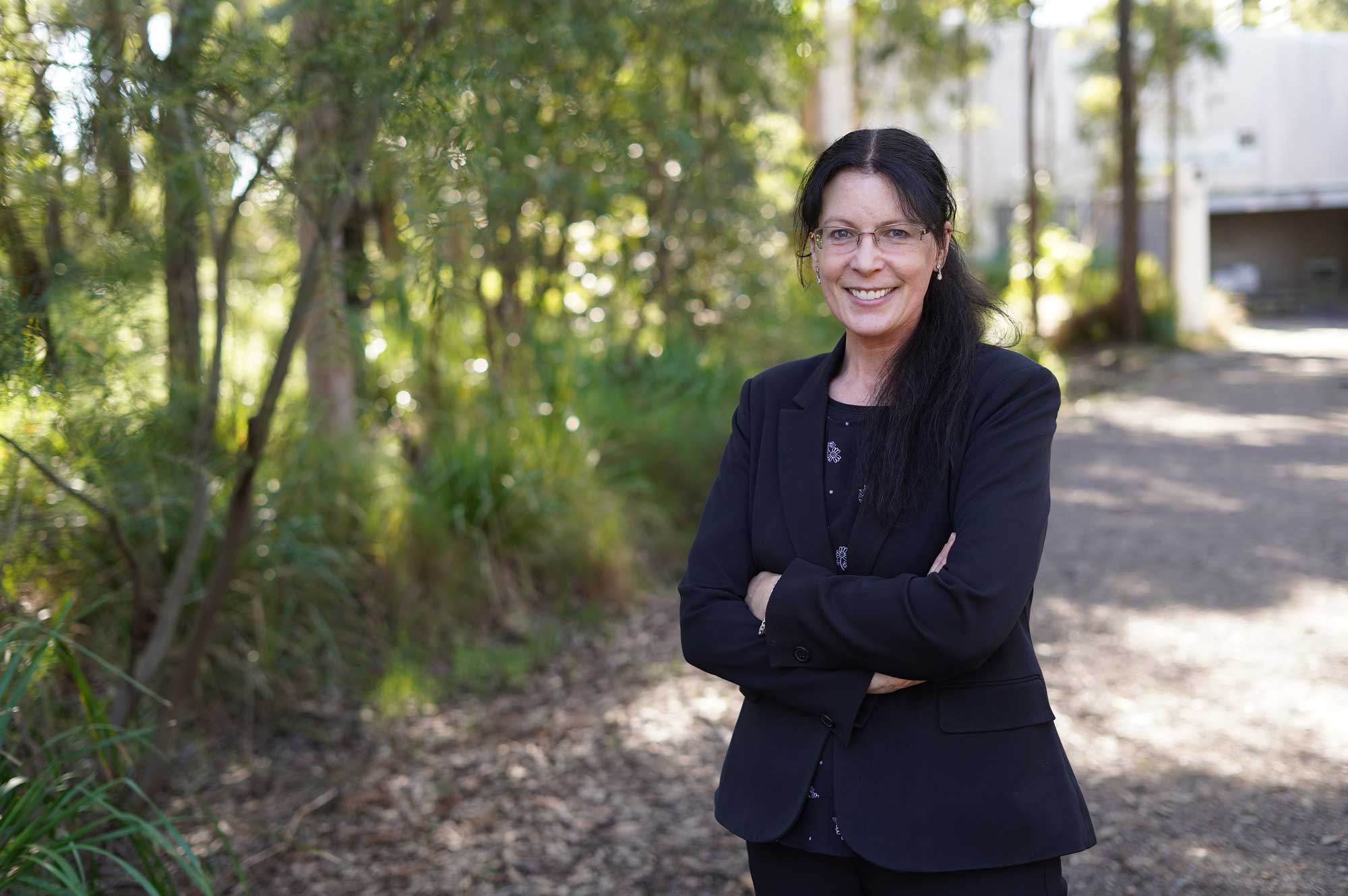Researcher Highlights
Aligning policy and practice for safer built environments
Associate Professor Kim Maund
Associate Professor Kim Maund is the Assistant Dean of Education for the College of Engineering, Science and Environment, and a force for change within the development and construction industry in Australia and worldwide.

With almost two decades of development and construction industry experience, Associate Professor Maund has seen first hand how regulatory policies guide and influence real-world outcomes. Effective policies, such as planning and building regulations, can protect community safety and security in crowded places, improve bushfire management through appropriate land zoning, promote environmental sustainability and so much more.
“Regulatory policy is a mechanism employed by government authorities and we remain a policy-driven society, yet, even with the introduction of such controls there remains a disparity between policy intent and outcome,” explains Kim. “My research aims to better understand this complexity.”
Kim’s recent work is helping to bring change, especially within the realm of planning and building policy and protocols. By evaluating the efficacy of policy introductions and amendments, Kim is narrowing the gap between what regulatory authorities propose and what happens on the ground, leading to more vibrant and resilient built environments and communities here in Australia and globally.
Solving industry challenges
Kim examines new and evolving policy directions as a way to proactively solve many prevailing challenges facing our society, such as disaster risk resilience. She believes policy extends “far beyond” the written word and therefore has no bounds as to the areas it impacts.
The same could be said about Kim’s research on the subject, which has been informed by her extensive involvement in a full spectrum of policy areas throughout her professional career. From issue identification and formulation through to implementation and evaluation, the hard-working scholar is continuing to build upon a solid knowledge base.
“My industry (including government) experience has aligned well with my academic career as I have a true understanding of the complexities around the built environment and the framework/systems in which it operates.”
“By understanding both theory and context, I am able to provide insight into solutions moving forward.”
National collaborations
Kim collaborates with Commonwealth, State and local government organisations, key industry stakeholders, the private sector and more to understand industry issues and develop research-based, innovative options to address them.
Her work aims to reduce “fragmentation, complexity and ambiguousness” and replace them with “clarity, direction, collaboration, education and awareness”. It is a process that often requires originality and out-of-the-box approaches, to help clearly communicate policies to communities.
Kim manages multiple multi-disciplinary projects. Nationally, her research has centred around disaster resilience and how policies can minimise the impact of bushfires and flooding through practices such as land use planning and building regulations. She researches policies and systems to build community resilience, for example, decision-making processes involved with rebuilding following bushfires.
Kim has also examined safety and security in crowded places, helping to understand and develop local policy from a proactive perspective rather than a reactionary one. “For example, when it comes to precinct development, there must be a consideration of safety and security elements from the initial proposal stages rather than after completion when retrofitting/redressing is required (which can be costly, and often unsightly).”
International impact
Kim’s research is helping to build a safer Australia and is also informing stronger policies and practices worldwide. For example, her research on international building codes aims to help communities affected by disaster events—such as Bangladesh and Nepal—to build resilience by broader knowledge and interpretation of safer building codes.
“One of our projects in the area of international building codes involved the development of a grey handbook for the informal building sector. The handbook concentrated on foundational principles to help construction teams erect safer buildings.”
The theme around policy and disaster events has also seen her research explore how to achieve zero-carbon buildings - reducing embodied carbon in the built environment. Most recently this involved fostering an Australia-India zero-carbon building construction network.
Academically, Kim’s research has been published and presented at national and international forums. Kim has won multiple best paper awards. She has also been appointed to many government and industry panels and committees due to her extensive experience and knowledge of policy. Her work is clearly underpinned by a love for policy and the built environment—and a desire to build resilience and help create a safer world for others.
“It makes me proud to know that I can actually make a difference at the operational level through research that evokes change with new information to guide policy and process.”
The University of Newcastle acknowledges the traditional custodians of the lands within our footprint areas: Awabakal, Darkinjung, Biripai, Worimi, Wonnarua, and Eora Nations. We also pay respect to the wisdom of our Elders past and present.
